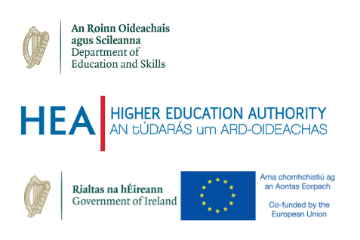This sequence of part-time courses is intended for graduates of disciplines, other than statistics, who want to develop and deepen their knowledge of statistical methods for solving problems involving data arising in business and industry, in public service agencies or in research agencies. The courses also introduce you to data science, a field that combines statistics with aspects of computer science, through an introduction to the basics of these other non-statistical aspects, such as machine learning and data management.
You can choose to study for 1, 2 or 3 years for a Postgraduate Certificate, Diploma or Masters qualification. The courses are best seen as ‘continuing professional development’ for people who need statistics for their work, or who are interested in eventually taking a more technical programme in data science.
The courses are entirely online and so can be accessed from anywhere with an internet connection. There is no need to access Trinity College campus in Dublin. They are also designed to be part-time, allowing you to fit them around a full-time job or other responsibilities.
There are 3 1-year courses that can be taken in order, with the option to exit with a qualification after the 1st or 2nd year. In the first year you study for a Postgraduate Certificate in Statistics and Data Science. Having completed that, you have the option to exit with this qualification or continue to study for a second year towards a Postgraduate Diploma in Statistics and Data Science. Once that is complete, you can exit with this qualification or continue for a third year towards a Master of Science award.
The intention is to provide participants with a practical grasp of statistics based on a sound knowledge of the underlying ideas and concepts. Graduates of the course should be well placed to apply the ideas and methods to which they have been introduced in their own work. To this end, all the material is presented in the context of practical examples from a wide range of applications.
Exiting with the Certificate, graduates have been introduced to the motivation for statistical analysis and the most important statistical methods that are typically found in applications, along with the skills to apply them and interpret the results. Continuing on to the Diploma, more sophisticated statistical methods are introduced and graduates will have a deeper understanding of statistical methods and how and when they are applied, to the point where a technical postgraduate degree in statistics or data science can be taken subsequently. Continuing on to the third year of study for a Master of Science, there is no coursework but you work with a supervisor to write a dissertation on a state-of-the-art statistical method that interests you.
/filters:format(webp)/filters:quality(100)/prod01/channel_3/media/tcd/scss/headshots/Simon-Wilson.jpg)

